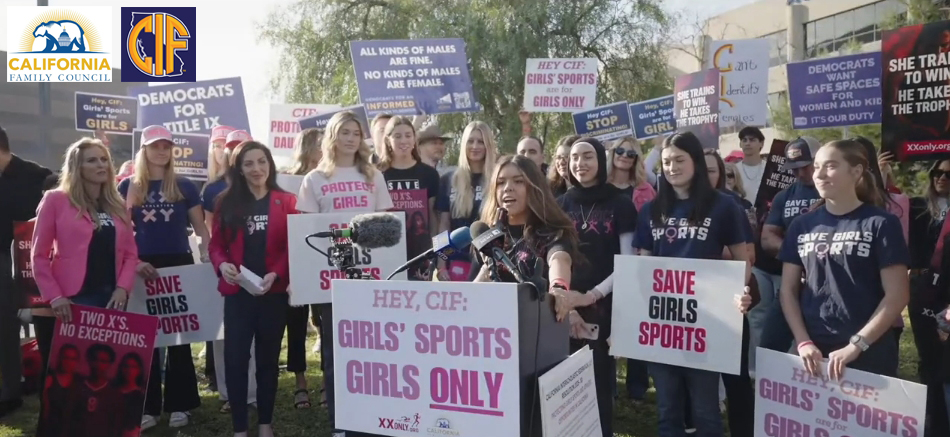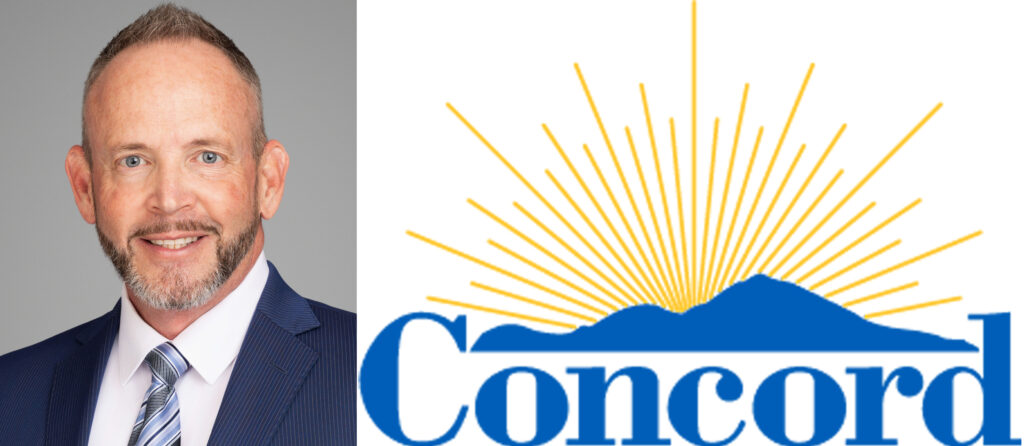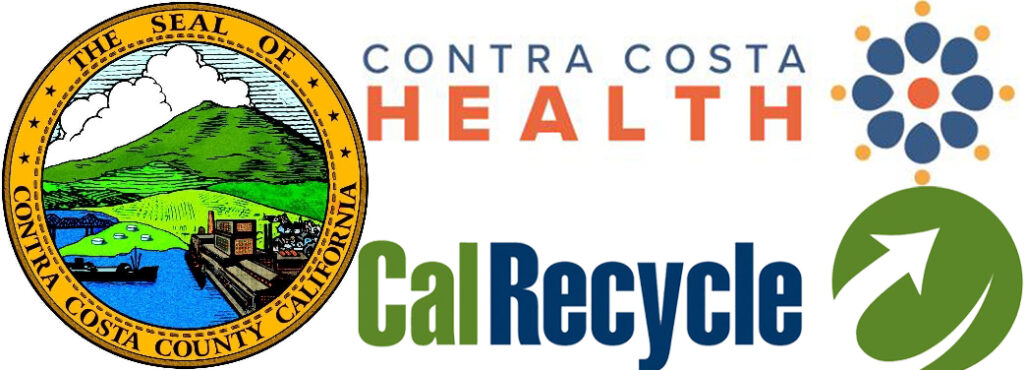Including stealing bags of jewelry valued at $300K to $500K from San Pablo jewelry store
Will serve combined 60 years in prison
One suspect arrested 30 times since 2013
By U.S. Attorney’s Office Northern District of California
OAKLAND – Nine associates of the Oakland-based “Ghost Town” gang have been sentenced to a combined total of nearly 60 years in prison for a series of armed robberies targeting small Bay Area businesses. The sentences were handed down by U.S. District Judge Araceli Martínez-Olguín, with the final defendant sentenced today.
The nine defendants, Demarco Barnett, 36 of Oakland; Jakari Jenkins, 34 of Stockton; Danny Garcia, 41; Garland Devonte Rabon, 30 of Mountain House; Aramiya Burrell, 35 of Oakland; Lester Andre Garnett, 34 of Tracy; Darrin Andre Hutchinson, 39 of Cherryland, CA, located between San Leandro and Hayward; Ricky Joseph, 37 of Oakland; and Keanna Alloise Smith-Stewart, 33 of West Sacramento, each pleaded guilty to one count of conspiracy to commit robbery affecting interstate commerce. Based on their involvement, eight of the defendants also pleaded guilty to a varying number of substantive counts of robbery affecting interstate commerce.
The robberies took place in 2022. On March 18, 2022, the co-conspirators engaged in the armed robbery of a coin and stamp store located on the tenth floor of a building in the South of Market neighborhood of San Francisco. The co-conspirators entered the store, brandished firearms, and demanded money from the business and the two individuals who happened to be present at the time – the owner and his son. The robbers struck the head and zip-tied the hands of the owner’s son, and absconded with cash, jewelry, and coins. Defendants Jenkins, Barnett, and Joseph were charged with and pleaded guilty to this robbery count.
The co-conspirators then struck a San Pablo jewelry store on Nov. 12, 2022. Five co-conspirators, at least three of whom were brandishing firearms, entered the store and pretended to be customers, while two others waited outside in the getaway cars. The co-conspirators stole bags of jewelry valued at approximately $300,000 to $500,000.
As previously reported, the pretend customers left jewelry with the operators of the store. According to the indictment, Jenkins, Barnett, and Rabon arrived at the jewelry store with at least four other co-conspirators and robbed the store of jewelry, including the jewelry that members of the gang previously had left with the store. The robbers arrived in two getaway cars—both Dodge Chargers bearing stolen license plates. Five co-conspirators, at least three of whom were brandishing firearms, entered the store while two of the co-conspirators waited outside in the getaway cars. The co-conspirators stole bags of jewelry valued at approximately $300,000 to $500,000. The indictment describes how all four defendants in the superseding indictment later wore the stolen jewelry, shared the stolen jewelry with other members of Ghost Town gang members, or otherwise made use of the stolen jewelry for their personal purposes.
Defendants Jenkins, Barnett, Rabon, Garcia and Hutchinson were charged with and pleaded guilty to this robbery count.
A third robbery occurred on Dec. 24, 2022, of a marijuana business in Oakland. The co-conspirators arrived at the business as an employee was leaving it. The robbers brandished weapons, directed the employee back into the building at gunpoint, demanding “budded weed” and “money.” One of the robbers struck the employee in the head with a firearm. The robbers searched through the employee’s pockets and stole his bank debit card. The robbers absconded with the victim’s debit card and a bag of marijuana plant trimmings. Defendants Jenkins, Barnett, Rabon, Burrell, Garnett, and Garcia were charged with and pleaded guilty to this robbery count.
United States Attorney Craig H. Missakian and FBI Special Agent in Charge Sanjay Virmani made the announcement.
The following chart summarizes the number of counts each defendant pleaded guilty to and the sentence each defendant received:
| Defendant | Number of Counts in Guilty Plea | Sentence (months) |
| Demarco Barnett | Conspiracy + 3 substantive robberies | 114 |
| Jakari Jenkins | Conspiracy + 3 substantive robberies | 96 |
| Danny Garcia | Conspiracy + 2 substantive robberies | 84 |
| Garland Rabon | Conspiracy + 2 substantive robberies | 75 |
| Aramiya Burrell | Conspiracy + 1 substantive robbery | 82 |
| Lester Garnett | Conspiracy + 1 substantive robbery | 70 |
| Darrin Hutchinson | Conspiracy + 1 substantive robbery | 70 |
| Ricky Joseph | Conspiracy + 1 substantive robbery | 68 |
| Keanna Smith-Stewart | Conspiracy | 50 |
| Total | 709 | |
In addition to the custodial time, the Court also ordered restitution in the amount of $150,338.00.
The Violent Crime Strike Force is prosecuting the case with the assistance of Yenni Weinberg. The prosecution is the result of an investigation by the FBI and the Oakland Police Department.
Previous Arrests of Suspects
According to localcrimenews.com, the five-foot, 11-inch, 215-pound Demarco is Black and has a history of nine arrests dating back to 2014 including five times for burglary and once for hit-and-run; the five-foot, five-inch tall, 180-pound Jenkins is Black and has been arrested 30 times since 2013 including 14 times for burglary, plus, multiple times for domestic violence, drugs and gun charges; the six-foot tall, 190-pound Rabon is Black and has a history of 11 arrests since 2016 including multiple times for burglary and petty theft, as well as gun charges; the five-foot, seven-inch tall, 195-pound Burrell is Black and has been arrested nine times since 2014 including for carjacking, burglary and multiple gun and ammunition charges; the six-foot, one-inch tall, 190-pound Garnett is Black and has been arrested six times since 2015 including multiple times for burglary as well as for DUI, gun and drug charges; the five-foot, 10-inch tall, 260-pound Hutchinson is Black and has been arrested three times including once for being an addict in possession of a firearm; Joseph is Black and has three arrests including one for burglary; and the five-foot, five inch tall, 135-pound Smith-Stewart is Black and has been arrested once on April 29, 2024, but no details were available. Information about Garcia was requested. Please check back later for any updates to this report.
Further Information:
Case No. 23-cr-00191-AMO
Electronic court filings and further procedural and docket information are available at https://ecf.cand.uscourts.gov/cgi-bin/login.pl. Judges’ calendars with schedules for upcoming court hearings can be viewed on the court’s website at www.cand.uscourts.gov.
Allen D. Payton contributed to this report.
Read MoreBy Colleen Awad, City of Concord Community Relations Manager
Concord, CA (February 10, 2026) – City Manager Valerie Barone announced today that Public Works Division Manager Kit Jory has been promoted to Public Works Director for the City of Concord, effective February 16, 2026. He replaces Director William Tarbox who served in the position since December 2021 according to his LinkedIn profile.
“Over the past several years, Kit Jory has demonstrated strong leadership and a deep understanding of the needs of our city’s residents. He has led numerous initiatives to effectively and efficiently deliver public works services to our community and to beautify our City; and I look forward to seeing the lasting impact of his leadership,” said Barone.
In this new role, Jory will be responsible for the City’s infrastructure maintenance (roads, trees, buildings, medians, sewer, stormwater, and parks) and will oversee a team of 94 skilled and dedicated public employees.
Since 2022, he has served as the Public Works Division Manager. In this role, he has led the City’s successful overhaul of maintenance operations across parks and made substantial advances in the City’s Urban Forestry Program.
Prior to joining the City of Concord, Jory served as Community Services Superintendent and City Arborist for the City of Fremont, and as an Operations and Management Crew Leader in Public Works for the City of Modesto. He brings over 20 years of experience in both private industry and public agencies. He holds a Master of Science Degree in Management and Leadership and a Master of Public Administration with an emphasis on organizational change.
On accepting the position, Jory said, “I am extremely grateful and excited for the opportunity to continue to serve such a diverse community, professional and collaborative City staff, and a forward-thinking City Council in this leadership role.”
For more information about the City of Concord Public Works Department visit Public Works | Concord, CA.
Allen D. Payton contributed to this report.
Read More

Discover Diablo Exploratory hike in Del Puerto Canyon. Photo: Kendra Smith. Inset – People enjoying our Discover Diablo hike looking for newts at Briones Regional Park. Photo: Emily Sherwood.
By Laura Kindsvater, Senior Communications Manager, Save Mount Diablo
CONTRA COSTA, ALAMEDA, STANISLAUS AND SAN BENITO COUNTIES—Explore some of the East Bay’s premiere hiking and natural areas with Save Mount Diablo in 2026, including places normally closed to the public.
The Discover Diablo outings series offers guided hikes, themed walks, and other outdoor activities: mountain biking; rock climbing; meditation in nature; plein air painting events; and property tours.
New this year are a Green Ranch rove, and a Spanish language hike at Pine Canyon.
We’ll also be continuing much-loved events in 2026 including rock climbing at Mount Diablo State Park and Pinnacles National Park, stargazing with the Mount Diablo Astronomical Society, our Mitchell Canyon medicinal herb walk, Pinnacles condor hikes and our tarantula treks!
Save Mount Diablo is offering a total of 36 more excursions in 2026 in Contra Costa County (Walnut Creek, Clayton, Concord, Pittsburg, Antioch, Brentwood, Oakley, Danville, and San Ramon), Alameda County (Dublin, Livermore, and Pleasanton), Stanislaus County (Patterson), and San Benito County (Hollister and San Juan Bautista). All events are free to the public. Trailblazers of all ages and skill levels are welcome to choose appropriate outings from our extensive offerings.
The Discover Diablo program began in 2017 to connect local communities to the spectacular natural world of the Mount Diablo area and to build awareness about land conservation.
Hikes and outings take place at Save Mount Diablo’s conserved properties or on park lands in the Diablo Range. These include Mount Diablo State Park, East Bay Regional Park District, Walnut Creek Open Space Foundation, Contra Costa Water District, Stanislaus County Parks, and National Park Service lands.
Discover Diablo hikes are guided by experts steeped in the natural history and lore of the region, who both educate and entertain while emphasizing the breathtaking beauty that the Diablo Range has to offer.
Save Mount Diablo hopes the Discover Diablo series will spark a passion for the Diablo Range and deepen people’s connections to the land and nature.
Ted Clement, Executive Director of Save Mount Diablo, stated, “It is the goal of the Discover Diablo program to build connections between people, Save Mount Diablo, and the land, helping our communities develop a strong sense of place and a deepened appreciation for our collective backyard. Most importantly, we want to cultivate a love of the land in participants, as that is what it will take to ensure the precious Diablo natural areas are taken care of for generations to come.”
There is something right for anyone to discover in the nooks and crannies surrounding Mount Diablo and within its sustaining Diablo Range, so be sure to hit the trails in 2026 and find your own individual inspiration!
RSVPs required. To ensure everyone has an equal opportunity to attend, registration for hikes and outings will open one month prior to each hike’s date. See our schedule of upcoming hikes and outings; view and RSVP online here: https://savemountdiablo.org/what-we-do/educating-and-inspiring-people/discover-diablo-hikes-outings/
Read MoreFree gifts at Grand Opening Saturday, February 14th
Second San Francisco East Bay location by co-owner Julie Husic marks the brand’s 68th location nationwide
By Anna Gasiorowski, Senior Account Executive, Segal Communications
BRENTWOOD, CA — FACE FOUNDRIÉ, an efficient and effective focused facial bar providing affordable, approachable, and accessible skincare in a modern and inclusive environment, has announced the opening of its newest franchise location at The Streets of Brentwood. The Grand Opening celebration will be held on Saturday, February 14th, at 10 a.m.
This opening marks the brand’s fifth location in California and the second franchise for Husic Beauty, a family-operated franchise group, following the successful debut of their first facial bar in Emeryville less than six months ago.
“We are thrilled to bring FACE FOUNDRIÉ to another wonderful East Bay community,” said Julie Husic, franchise co-owner. “Our experience in Emeryville reaffirmed the strong demand for quality skincare at an affordable price, and opening in Brentwood is an important step toward our goal of bringing this incredible brand to more communities throughout the region.”
Julie Husic oversees operations for the franchise group she co-owns with her two sons, FJ and Paris Husic, who lead marketing efforts. The expansion into Brentwood reflects FACE FOUNDRIÉ’s continued franchise growth and momentum in Northern California and represents a key milestone as the brand joins the re-envisioning of Streets of Brentwood by CenterCal Properties, LLC. The Husic family views this location as an opportunity to further serve the diverse needs of East Bay residents by offering an elevated yet affordable alternative to traditional spa services, while reinforcing FACE FOUNDRIÉ’s commitment to delivering consistent, high-quality experiences supported by strong local ownership.
Join us for the FACE FOUNDRIÉ Brentwood Grand Opening celebration on Saturday, February 14th from 10–11:30am at The Streets of Brentwood, 2455 Sand Creek Road, Suite 132, Brentwood, next to Chico’s on the east end of The Streets.
The first 50 guests in line will receive a free Focused Facial coupon and a goodie bag from local businesses, plus, enjoy mini FACE FOUNDRIÉ consultations, demos, and a photo/selfie station.
Hint: come early to secure your spot!
This wonderful team couldn’t be more excited to join the Brentwood community and to celebrate with all of you. We hope to see you there!
“We are excited to welcome FACE FOUNDRIÉ to The Streets of Brentwood,” said Charles Martinez, Senior General Manager. “Their innovative approach and commitment to exceptional guest experiences will be a strong addition to our growing mix of retail partners. We look forward to the value they will bring to the community.”
FACE FOUNDRIÉ continues to differentiate itself from its competitors through a broad selection of services and commitment to affordability, approachability and accessibility. The brands’ two different monthly membership options offer clients discounted services and products, enabling them to maintain a consistent skincare routine at a lower cost while experiencing the convenience of a focused facial bar.
For more information about FACE FOUNDRIÉ’s services or to book an appointment at the new Brentwood location, visit www.facefoundrie.com/brentwood and follow @husicfam.facefoundrie on Instagram.
ABOUT FACE FOUNDRIÉ
FACE FOUNDRIÉ is an all-inclusive focused facial bar. We empower our customers to look and feel their best by providing cutting-edge services, accessible pricing, and an extensively trained staff of experts that deeply care. Our goal is to provide efficient and effective services for all things face: facials, lashes, brows, and skincare. We pride ourselves on offering an impeccable service experience and strive for 100% consumer satisfaction! We aim to be affordable, approachable and accessible to all.
ABOUT THE STREETS OF BRENTWOOD
The Streets of Brentwood, a top-tier shopping destination located in Brentwood, Calif., features a dynamic and convenient mix of retail, dining, and entertainment. It is the premier shopping, dining, and entertainment lifestyle destination within the hub of four major California regions — Bay Area, Tri-Valley, Sacramento Delta, and the Central Valley. Featuring more than 40 stores and restaurants and a 14-screen AMC Theatre with IMAX. For more information, visit: ShopStreetsOfBrentwood.com.
ABOUT CENTERCAL PROPERTIES, LLC
CenterCal, a premier full-service commercial real estate company founded in 2004, is redefining the landscape of the western U.S. With a focus on community-building, the company creates spaces that foster connection, enjoyment, and a sense of belonging. Under the visionary leadership of founder Jean Paul Wardy, CenterCal has become synonymous with excellence and innovation, boasting a portfolio of iconic destinations across California, Idaho, Oregon, Utah, and Washington. Rooted in core values that include creative persistence, uplifting communities, and creating magical places, CenterCal specializes in the investment, development, leasing, and management of high-quality retail and mixed-use developments from its headquarters in Costa Mesa, Calif. More information, including a full property portfolio, is available at www.centercal.com.
Read More
Female athletes and others listen as speakers share their opinions during the California Family Council press conference before the CIF’s Federated Council meeting last Friday morning, Feb. 6, 2026. Source: Screenshot of video by CA Family Council.
By Greg Burt, Vice President, California Family Council
LONG BEACH, CA — Outside a Long Beach hotel where the California Interscholastic Federation (CIF) convened its Federated Council meeting last Friday morning, Feb. 6, 2026, female athletes stood shoulder to shoulder with parents, advocates, and state lawmakers to deliver a clear and urgent message: girls’ sports are for girls.
The 111-year-old CIF, according to Wikipedia, is the governing body for public and private high school sports in California.
The February 6 press conference, organized by California Family Council’s Outreach Director Sophia Lorey, ahead of the CIF meeting, marked a significant moment in California’s ongoing debate over fairness and safety in women’s athletics. For the first time, two members of the California State Assembly publicly joined female athletes to confront CIF leadership over policies that allow males who identify as transgender to compete in girls’ sports and access female locker rooms, policies critics argue violate the original intent of Title IX. (Watch the press conference here…)
But the peaceful gathering also revealed the deep political divide surrounding the issue, as a prominent Democrat legislator representing the Long Beach area publicly criticized the presence of Republican lawmakers and dismissed concerns raised by female athletes.
Athletes Speak: “This Isn’t Fair. This Isn’t Safe.”
At the heart of the press conference were the voices of young women whose athletic careers have been directly impacted by CIF policies.
Reese Hogan, a varsity tri-sport athlete in track and field at Crean Lutheran High School, described the toll of repeatedly competing, and losing, against a male athlete in girls’ events.
“Track is not just something I do. It’s who I am,” Hogan said. “I train to push my limits, to compete fairly, and to earn every achievement through hard work. But over the past two years, that fairness has been taken away from me.”
Hogan detailed five separate competitions, spanning from May 2024 to January 2026, in which she lost to a male athlete competing in the girls’ division. One moment, she said, still stands out.
“At CIF finals, I broke my school record in the triple jump,” Hogan explained. “I jumped 37.2, earning a new personal record and breaking my school record. It was one of the proudest moments of my athletic career. That jump should have earned me first place.” Instead, a male athlete who jumped 4 feet farther placed first.
Hogan said the experience was devastating.
“CIF, why won’t you do anything?” she asked. “You are protecting males competing in women’s sports more than you are protecting the women the sport was created for.”
Hogan warned that allowing males into girls’ sports is not merely unfair, but dangerous.
“There is a reason sports are divided by sex,” she said. “It is not a matter of opinion; it’s a matter of fact.”
Locker Rooms and Lost Privacy
Another athlete, Audrey Vanherweg, a senior and four-year varsity athlete at Arroyo Grande High School, spoke about the consequences of CIF policies beyond the field of play.
Two years ago, Vanherweg said, she began hearing rumors that a boy was using the girls’ locker room. At first, she tried to ignore it. But when she learned that the same male student would also compete in girls’ track and field, the issue became unavoidable.
“I wasn’t going to go into a locker room and change in front of a boy,” Vanherweg said. Especially since he “wasn’t changing himself, but simply just watching all of us girls undress.”
Rather than risk her privacy, Vanherweg made a painful decision.
“I decided to go change in my car,” she said. “I’m more comfortable changing in my own car than in my own school locker room, where boys are welcomed to watch girls undress.”
As a thrower, she explained, competing against males also undermines fairness.
“Boys have a strength advantage,” she said, explaining that boys compete with the heavier implements in track and field competitions. “So, if a boy decides to throw as a girl, he not only has the strength advantage, but also a lighter implement.”
Vanherweg said she is speaking out not just for herself, but for future generations of girls.
“I’m speaking out against CIF policy, not only for myself, but for all other girls, girls who are too afraid to speak out, girls who don’t know what’s going on, and girls who haven’t been born yet,” she said.
Lawmakers Step In
Standing with the athletes were Assemblywoman Kate Sanchez (R–Murrieta) and Assemblyman David Tangipa (R–Fresno), the first time multiple Republican legislators have publicly joined female CIF athletes at such an event.
Assemblywoman Sanchez, author of AB 89, the Protect Girls’ Sports Act, said the rejection of her bill in committee last year did not end the fight.
“Politicians killed the bill, but they didn’t kill this movement,” Sanchez said. “And they didn’t silence these athletes.”
Sanchez emphasized that Title IX was designed to guarantee fairness and opportunity for women.
It was “never meant to be controversial,” she said. “It was meant to guarantee girls a fair shot, a fair race, a fair roster, and a fair opportunity to win.”
She warned that those protections are being eroded across California.
Girls “are losing podium spots, losing championships, losing scholarships… and some are even losing the basic right to privacy and safety in their own locker rooms.” Sanchez said. “That is not equality. That is not progress, and we will not pretend it is.”
Assemblyman Tangipa, a former Division I football player at Fresno State, challenged fellow lawmakers to stop referring to those who want female-only sports as Nazis. He also urged fathers to confront the reality facing young women.
“Why or how is it somehow believed [that it’s] Nazi ideology when you just wanna place to dress freely, and why and how is it Nazi ideology when you want to play in your sport freely?” Tangipa asked. “Why do we ignore safeguards and disregard biology and reality, which is insanity?
He urged fathers to step up.
“There are boys in your daughter’s locker room. There are boys in your daughter’s sports,” he said. “Where are you?”
Tangipa pledged continued action, including potential ballot initiatives, to restore protections for female athletes.
A Democrat Arrives—Then Attacks
In an unexpected development, Assemblyman Josh Lowenthal (D–Long Beach), the Speaker pro Tempore and representative of the district where the CIF meeting was held, appeared near the protestors, but not to support their cause.
Instead, Lowenthal criticized the presence of Republican legislators in his district, accusing them of staging a press conference “about trans kids in sports” without notifying him.
“We all know they don’t actually care about women,” Lowenthal said, adding that an upcoming budget vote funding $90 million for “women’s reproductive health, [abortion]” specifically for Planned Parenthood, would prove his point.
Assemblywoman Sanchez later responded by posting a video of Lowenthal’s remarks on X. (Watch this post here…)
“Respectfully,” Sanchez wrote, “I will stand up to protect girls’ sports in any city, and I’ll always stand with these brave women… No man, especially not you, will ever tell me otherwise.”
Sophia Lorey Challenges CIF
After the press conference, Sophia Lorey, Outreach Director for California Family Council and a former four-year CIF varsity athlete herself, addressed the CIF Federated Council directly, issuing a pointed challenge to its leadership. Lorey rejected the claim that CIF’s hands are tied by state law, arguing that the federation has the authority to act now if it chooses to do so.
“You have a policy in place,” Lorey told the board. “Until you remove the policy that allows males to be in female locker rooms and sports, you can’t say your hands are tied by the state. Remove that policy and stand up for these girls.” Lorey emphasized that female athletes should never have to resort to lawsuits to secure basic protections, adding that CIF leaders have a limited window to act. “Silence is no longer neutrality,” she warned, calling on CIF officials to work with advocates and restore fairness and safety in girls’ sports.
Many of the female athletes also went inside to address CIF leadership directly during the public comment period.
For them, the issue is not partisan.
“This isn’t about politics,” Sanchez said. “It’s about principle.” And as the athletes made clear, they are no longer willing to be silent.
“When you sideline girls,” Sanchez warned CIF leaders, “we will stand up. When you ignore them, we will amplify them. And we will not stop fighting.”
About California Family Council
California Family Council works to advance God’s design for life, family, and liberty through California’s Church, Capitol, and Culture. By advocating for policies that reinforce the sanctity of life, the strength of traditional marriages, and the essential freedoms of religion, CFC is dedicated to preserving California’s moral and social foundation.
Allen D. Payton contributed to this report.
Read More
Mike Bowers has been named president of Kaiser Foundation Health Plan and Hospitals in Northern California. Photo: Kaiser Nor Cal
Mike Bowers served as interim leader since February 2025
By Elissa Harrington, Sr. Media Relations & PR Rep., Kaiser Permanente Northern California
OAKLAND, Calif.— Kaiser Permanente has named Mike Bowers as president of Kaiser Foundation Health Plan and Hospitals in Northern California.
Bowers has served as the region’s interim president since February 2025, overseeing operations for 21 hospitals and 203 medical offices, as well as the health care and coverage of 4.6 million Kaiser Permanente members.
Bowers joined Kaiser Permanente in 2022 as senior vice president for health plan and hospital operations in Northern California. Under his leadership, Northern California achieved significant improvements in care quality, patient safety, and affordability through an innovative care delivery redesign process. The region also earned national recognition, receiving seven prestigious Beacon Awards from the American Association of Critical-Care Nurses recognizing exceptional patient care and a supportive work environment.
“Mike’s leadership has strengthened our operational performance, expanded our joint efforts with The Permanente Medical Group, and elevated the experience we provide to our members,” said Craig T. Albanese, MD, president, Integrated Care and Coverage, Kaiser Permanente. “His proven ability to deliver meaningful results positions our Northern California region for continued growth and long-term success.”
Bowers brings nearly three decades of health care leadership experience to this role. Before joining Kaiser Permanente, he served as regional chief operating officer for SSM Health’s St. Louis and Southern Illinois regions, following four years as president of SSM Health St. Joseph Hospitals in St. Louis. His career has included leadership roles at Dignity Health in California’s Central Valley, Community Hospital Corporation in Dallas, and Memorial Hermann in Houston.
Bowers is a Fellow of the American College of Healthcare Executives and serves on multiple community boards. He holds both a Master of Health Administration and a Master of Business Administration from the University of Houston–Clear Lake, and a Bachelor of Science in Biological Sciences from the University of Pittsburgh.
About Kaiser Permanente
Kaiser Permanente is committed to helping shape the future of health care. We are recognized as one of America’s leading health care providers and not-for-profit health plans. Founded in 1945, Kaiser Permanente has a mission to provide high-quality, affordable health care services and to improve the health of our members and the communities we serve. We currently serve 12.6 million members in 9 states and the District of Columbia. Care for members and patients is focused on their total health and guided by their personal Permanente Medical Group physicians, specialists, and team of caregivers. Our expert and caring medical teams are empowered and supported by industry-leading technology advances and tools for health promotion, disease prevention, state-of-the-art care delivery, and world-class chronic disease management. Kaiser Permanente is dedicated to care innovations, clinical research, health education, and the support of community health. For more information, go to about.kp.org.
Read MoreIncludes statewide offices, Congress, State Assembly, County Supervisor and others
Deadline: March 6 unless incumbent chooses to not run for re-election
By Dawn Kruger, Community and Media Relations Coordinator, Contra Costa County Clerk-Recorder-Elections Department
Today, Monday, February 9, the Candidate Filing Period for the June 2, 2026, Statewide Direct Primary Election begins, and nomination papers will be available for candidates running for Statewide Constitutional offices, United States Representative in Congress, Member of the State Assembly, County offices and Superior Court Judges. The nomination period runs through 5:00 pm Friday, March 6, 2026, unless an incumbent chooses to not run for re-election. The deadline is then extended by five days to 5:00 pm Wednesday, March 11th.
Offices up for election include the statewide positions of Governor, Lieutenant Governor, Secretary of State, Controller, Treasurer, Attorney General, Superintendent of Public Instruction, Insurance Commissioner and Board of Equalization, District 2. Plus, elections for the House of Representatives, State Assembly, Board of Supervisors, Districts 1 and 4, Assessor, Auditor-Controller, Clerk-Recorder, Treasurer-Tax Collector and County Superintendent of Schools will be held in June, as well.
A list of offices currently up for election can be found here: www.contracostavote.gov/wp-content/uploads/26Jun02_PositionsUpForElection_OfficeOnly.pdf
Papers for offices that are up for election will be available at the Contra Costa Elections Office, located at 555 Escobar Street, Martinez. County Elections staff are working with the City Clerk in Richmond to help implement the electoral reform passed by the voters of Richmond in 2024 requiring candidates for City Council and Mayor to file with the City of Richmond and run in the Primary.
For further information on the primary election and key dates, go to www.contracostavote.gov
“Election activities for the 2026 Primary are ramping up in Contra Costa County,” said Kristin B. Connelly, Contra Costa Registrar of Voters. “Candidate filing is an important first step in the election process, and our Candidate Services team is prepared to guide prospective candidates through key deadlines, requirements, and resources as they consider running for public office.”
Interested candidates can schedule an appointment through email at candidate.services@vote.cccounty.us or by calling 925-335-7800. Walk-ins are accepted, but subject to the availability of staff. Appointments are available on weekdays from 8:30 am to 4:30 pm. Filing documents and information will be provided to interested constituents at their appointment. The process takes approximately 20 minutes.
Allen D. Payton contributed to this report.
Read MoreContra Costa County seeks members for Solid Waste Local Enforcement Agency Independent Hearing Panel
Application Deadline: March 6
By Contra Costa County Office of Communications & Media
(Martinez, CA) – In 2013, the Contra Costa County Board of Supervisors established an Independent Hearing Panel for the Contra Costa Solid Waste Local Enforcement Agency (LEA).
Contra Costa Health’s Environmental Health Program is certified by the California Department of Resources Recycling and Recovery (CalRecycle) as the LEA for Solid Waste in the county. The LEA ensures that all solid waste disposal facilities and medical waste generators comply with applicable local, state and federal codes and regulations.
The three-member panel hears matters related to solid waste enforcement, permits and appeals.
County residents who have an interest in public policy and solid waste management are encouraged to apply for this volunteer opportunity. Panelists receive a stipend of $50 on those days on which the panel meets. The County Board of Supervisors will appoint to fill three vacancies for a four-year term ending on March 31, 2030.
Application forms can be obtained from the Clerk of the Board of Supervisors by calling (925) 655-2000 or by visiting the County webpage at: https://contra-costa.granicus.com/boards/forms/321/apply/
Applications should be returned to the Clerk of the Board of Supervisors, County Administration Building, 1025 Escobar Street, Martinez, CA 94553 no later than 5 p.m. on Friday, March 6, 2026. Applicants should plan to be available for public interviews via video conference on Monday, March 23, 2026.
For more information about the LEA Independent Hearing Panel, contact Tim Kraus, Contra Costa County Environmental Health, at (925) 608-5549 or Tim.Kraus@cchealth.org.
Allen D. Payton contributed to this report.
Read More“They should go back to the drawing board and give us a cost savings plan that demands more sacrifice from BART management, senior staff, and retirees.”
By Marc Joffe
BART has published a plan to balance its budget in the event voters reject the half-cent additional transit sales tax slated for the November 2026 ballot. BART’s plan appears to be well thought out but imposes far more inconvenience on riders than is necessary to close an expected $376 million deficit.
The most visible change is the station closures. Under its more extreme Phase 2 plan, BART would close 15 stations systemwide, including these five in Contra Costa: Orinda, North Concord, Pittsburg Bay Point, Pittsburg Center, and Antioch. Oakland Airport station would close, but SFO would stay open. Five other stations in Alameda County south of Oakland would be shuttered, as would four stations in San Mateo County south of Daly City. (See related article)
But most of these stations should not close. As BART itself recognizes, the savings from shuttering stations are not that large. And there is an alternative that would achieve a large portion of the expected savings, which is to operate the stations on an unstaffed basis. This idea may seem strange to BART riders expecting to see a station agent, but the fact is that many train stations in California operate without staff, including several on Capitol Corridor and Caltrain. Even Pittsburg Center on e-BART often operates without staff.
That said, both Pittsburg Center and North Concord have very low utilization (less than 1000 riders on an average weekday) and are reasonable candidates for closure. Indeed, BART should demolish the North Concord station and sell the parking lot to a developer for conversion to single family housing, a use consistent with the adjoining neighborhood.
Pittsburg Center, being in the median of Highway 4, does not offer a similar redevelopment option. It is one of three stations on the eBART extension connecting Antioch, Pittsburg and Bay Point using standard-gauge diesel multiple-unit trains which are incompatible with the rest of BART. The BART retrenchment plan envisions closing the whole eBART extension. A better choice would be to find a private operator to take it over.
That operator should be given discretion over fares and the option to convert the line to driverless technology in hopes of achieving a profit or at least minimizing the need for taxpayer subsidies.
As anyone who has visited an airport in the last few decades knows, driverless trains are nothing new. Outside the Bay Area, they are used for non-airport systems such as Honolulu’s Skyline and Vancouver’s Skytrain. Paris, Singapore, and other cities have successfully converted some of their lines to autonomous operation and Washington DC’s Metro is looking into doing the same thing.
Over the longer term, the entire BART system should be driverless: it could achieve large operational cost savings while maintaining or even increasing service frequency. Yet BART is not giving serious consideration to transitioning to driverless trains. When BART Director Matt Rinn spoke to CoCoTax in November I asked him about the idea and saw that he was unfamiliar with it. Staff should be discussing this option with the governing board.
They don’t do so because BART operates primarily for the benefit of staff and the labor unions that collect a portion of their salaries via dues. Riders are second, and taxpayers are a distant third.
Contra Costa taxpayers already pay plenty for transit, and, this November, it is time for us to tell BART and other agencies “no more.” They should go back to the drawing board and give us a cost savings plan that demands more sacrifice from BART management, senior staff, and retirees.
One change that should be considered is a 10% salary reduction for all BART employees receiving over $100,000 per year. Based on my analysis of 2024 wage and overtime data, this option would save $54 million. Costly overtime hours should also be limited: in 2024 alone five BART employees collected over $200,000 in overtime a piece.
BART’s plan defers advanced payments for retiree health benefits. This saves $38 million, but only by pushing the cost onto future taxpayers when the fund holding the advance retiree health funding is exhausted. Instead, the BART retiree health benefit should be eliminated just as it was for Stockton employees when that city went bankrupt in 2012. With BART facing functional bankruptcy in 2026, a similar economy is needed. Retirees can get subsidized healthcare through Covered California or Medicare just as those of us who work in the private sector usually do.
Salary and benefit cuts in addition to the layoffs BART already has planned may seem harsh, but these are the types of reductions companies have to make when they are losing money and there is less demand for their product. Because BART now needs more of our money, we have the power to veto any cost-saving plan that fails to prioritize the needs of beleaguered taxpayers and riders. Let’s exercise that veto. In November, say NO to the transit sales tax.
Marc Joffe is the President of the Contra Costa Taxpayers Association
Read MoreBy Victor Benedict Tiglao, Communications Associate, Office of Contra Costa County Supervisor Ken Carlson
“Across the Bay Area, we stand united in our commitment to the dignity, safety and belonging of every community member, regardless of immigration status. As we prepare for the Super Bowl this weekend, and upcoming major sporting events in 2026, our message is simple: Unity over division, power over panic, and care for one another.
To our immigrant community members: You belong here. This region is our collective home, and you are at the heart of what makes the Bay Area one of the most diverse, innovative and vibrant places in the world.
We recognize that many across the Bay Area are experiencing fear and anxiety at this time. As local jurisdictions, we have clear policies in place to protect the safety of all residents across the region, including our immigrant communities. Local law enforcement remains focused on keeping everyone safe and building trust in our communities.
In the Bay Area, our strength lies in each other. When we stay informed and support one another, we make our region safe and strong. Rapid Response Networks, community-based organizations, and county resources continue to be available to support residents across the Bay Area.
As a connected, resilient region, we are unwavering in our commitment to our immigrant communities. Together, let’s look out for our families and neighbors, follow verified information, and continue to draw pride and power from our shared connection to this extraordinary place we call home.”
Supervisor Ken Carlson, Contra Costa County
Supervisor John Gioia, Contra Costa County
Supervisor Margaret Abe-Koge, Santa Clara County
Supervisor Sylvia Arenas, Santa Clara County
Supervisor David J. Canepa, San Mateo County
Supervisor Connie Chan, San Francisco City and County
Supervisor Chyanne Chen, San Francisco City and County
Supervisor Noelia Corzo, San Mateo County
Supervisor Betty Duong, Santa Clara County
Supervisor Susan Ellenberg, Santa Clara County
Supervisor Jackie Fielder, San Francisco City and County
Supervisor Nikki Fortunato-Bas, Alameda County
Supervisor Lisa Gauthier, San Mateo County
Supervisor Rebecca Hermosillo, Sonoma County
Supervisor Lynda Hopkins, Sonoma County
Supervisor Cassandra James, Solano County
Supervisor Otto Lee, Santa Clara County
Supervisor Eric Lucan, Marin County
Supervisor Elisa Márquez, Alameda County
Supervisor Monica Martinez, Santa Cruz County
Supervisor Myrna Melgar, San Francisco City and County
Supervisor Ray Mueller, San Mateo County
Supervisor Dennis Rodoni, Marin County
Supervisor Mindy Sotelo, San Benito County
Supervisor Jackie Speier, San Mateo County
Supervisor Shamann Walton, San Francisco City and County
_______________________________________________________________________
We are asking the public to build power, not panic, and to avoid spreading fear or misinformation. Use the Rapid Response Network in your area to share and receive accurate and verified information.
Contra Costa County: 925-900-5151
Alameda County: 510-241-4011
Marin County: 415-991-4545
Monterey County: 831-204-8082
Napa County: 707-800-4544
San Benito County: 831-204-8082
San Francisco City and County: 415-200-1548
San Mateo County: 203-666-4472
Santa Clara County: 408-290-1144
Santa Cruz County: 831-239-4289
Solano County: 707-800-4544
Sonoma County: 707-800-4544
Read More























